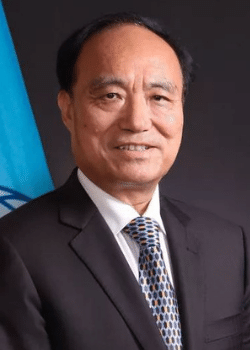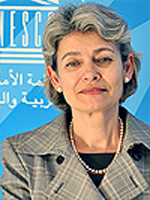In September 2015, the United Nations summit for the adoption of the post-2015 development agenda will adopt the proposed set of Sustainable Development Goals (SDGs), representing a shared commitment on the part of UN Member States and the international community to work together to promote sustained and inclusive economic growth, social development and environmental protection, in the interest of creating a world that is just, equitable and inclusive.
To this end, the ITU/UNESCO Broadband Commission for Sustainable Development is launched with the aim of promoting the use of broadband to achieve the sustainable development goals.
"Four billion people still have no Internet access. There is an urgent need to reverse this trend. Fewer than seven per cent of households in the Least Developed Countries are connected. This is a problem, of course, but it is also means there is a lot of room for growth. In Africa, we are determined to seize this opportunity. An example is the Smart Africa initiative, which encourages nations to invest more in infrastructure, innovation, and entrepreneurship."

“The proposed set of 17 SDGs provide a clear and solid framework for human development. Broadband represents a powerful way to accelerate progress towards their attainment. We need to look at innovative cross-sectoral strategies that can leverage the power of high-speed networks to improve education, healthcare and the delivery of basic social services to everyone, and especially the poorest in the world who need them most.”
Carlos JarqueRepresenting the Commission's co-chair, Mr Carlos Slim
“The UN Sustainable Development Goals will stimulate action over the next fifteen years in areas of critical importance for humanity and the planet. All three pillars of sustainable development – economic development, social inclusion and environmental protection – need ICTs as key catalysts. That is why the Commission believes that ICTs, and particularly broadband, will be absolutely crucial for achieving the SDGs.”

“To succeed, the new Agenda will draw on all accelerators of inclusion, all multipliers of poverty eradication and sustainability, and our message is that broadband, and new technologies, are a transformational force, to build inclusive knowledge societies,. This goes beyond mere advocacy for networks and services. This is about opening new paths to create and share knowledge, about enhancing freedom of expression, about widening learning opportunities, especially for girls and women, about developing content that is relevant, local and multilingual – this message has never been so important.”






